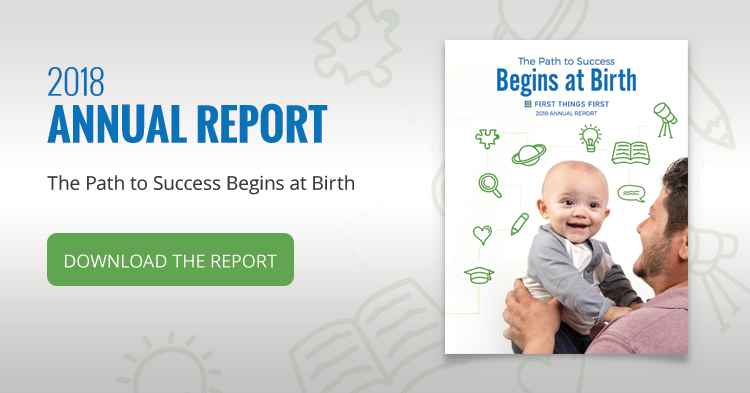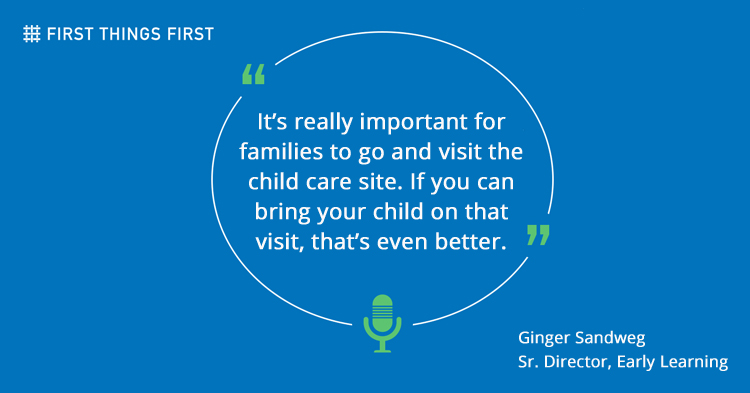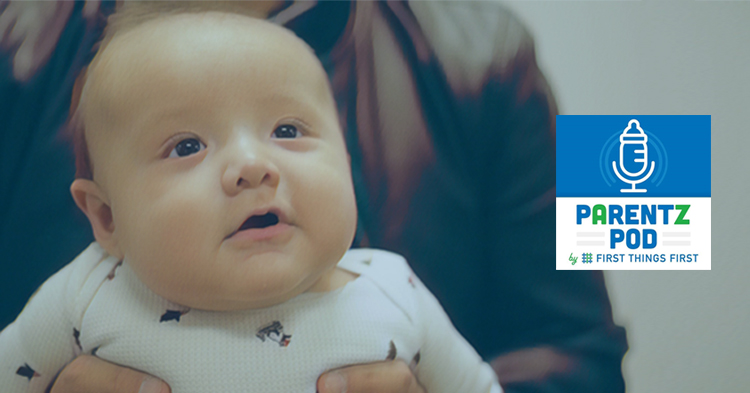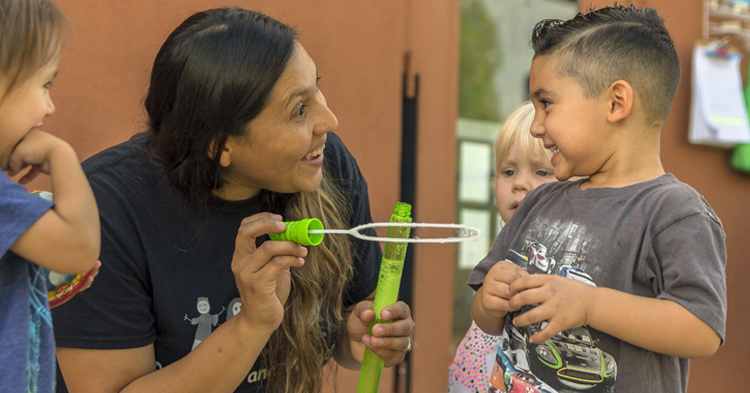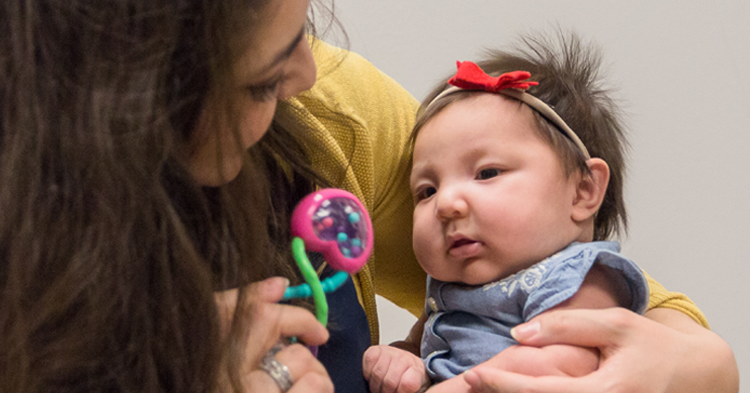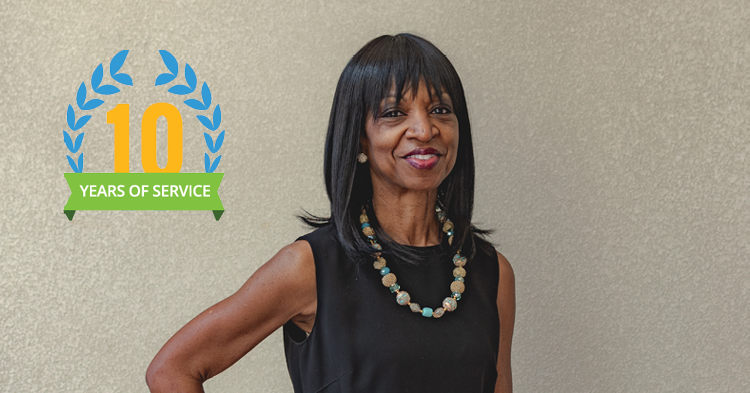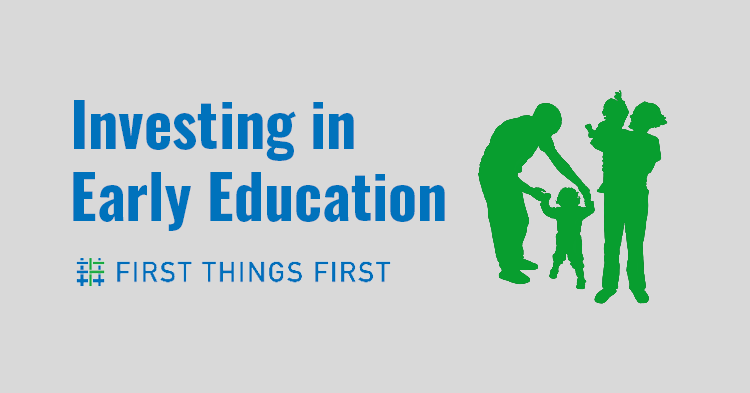
Even though Katharine Stevens began her career as a preschool teacher, she now spends most of her time advocating for early childhood education from an economic development perspective. Dr. Stevens is the resident scholar for the American Enterprise Institute and principal author of Workforce of Today, Workforce of Tomorrow, the U.S. Chamber of Commerce Foundation’s business case for early childhood investment.
At a recent AEI conference, I had a chance to meet with Dr. Stevens, and I asked her why she believes today’s policymakers – who are often elected on platforms to improve education and promote economic growth – need to focus more attention on early childhood. She pointed to research that demonstrates how about half of U.S. children born to economically struggling families are up to two years behind their peers by the time they enter kindergarten. This gap widens as children progress through school, resulting in poor performance, increased need for remediation and high dropout rates.
She went on to describe how many children arrive at kindergarten underprepared because they come from a household in which all adults are working, yet lack adequate access to care that provides a quality early learning environment (which can cost as much as college tuition). Stevens’ report cites studies that describe how 70 percent of nonworking poor adults cite “taking care of family” as the reason they are not in the workforce, and more than half of the parents who drop out of college cite “family commitments” as the reason (three-quarter of these also said access to child care would have made a difference).
Choosing between work and child care
To put it succinctly, many parents are put in the tough situation of choosing between the need to work or complete their education and the need to care for their children. It also creates strain on employers who increasingly report a loss of work hours and productivity as parents have to juggle inconsistencies that come from inadequate child care.
Today’s employers also are struggling to find workers with the right set of skills for today’s workplace – skills that go beyond the technical or job-specific and more toward the quality workplace interactions, like teamwork, communication, problem-solving and follow-through on commitments. These so-called “soft skills” are sorely missing, according to business leaders.
Stevens’ report cites studies that show many employers look for the “soft skills” as they consider candidates and that they are among the highest priorities for employers. Additional studies show that they will become increasingly important for the jobs of the future. Those skills start to develop at birth and are taught, promoted and strengthened through quality child care.
Building human capital
Due to all these factors, Dr. Stevens stresses that high quality child care is a powerful two-generation approach that builds the human capital upon which the American economy depends. It gives parents increased opportunities to participate in the labor force, complete education and advanced training; boosts productivity; and helps employers to attract and retain talent. For young children, it ensures they have the opportunity to grown and learn in their earliest years of life, and are able to thrive in kindergarten and beyond when they become the future workforce.
Having high quality child care with the resources available for families to access it is not just good for kids, it is good for parents as employees, their employers, and ultimately our economy.


